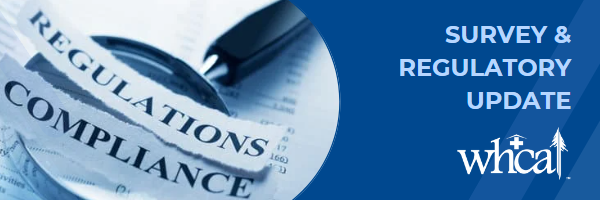Jan 3 2022 | Grievance System
Outlined in section CFR 483.10 Resident Rights in the Federal Register/Vol.81, No.192 are the requirements for all skilled nursing facilities related to management of grievances/complaints. While F585 (Appendix PP – November 22, 2017 (cms.gov)) goes into greater detail regarding the facility responsibility for managing grievances, some key highlights are outlined below:
- The facility must make information available to the resident on how to file a grievance or complaint.
- The facility must establish a grievance policy to ensure prompt resolution of all grievances regarding resident rights contained in the rule.
- The facility must supply a copy of the policy to a resident upon request.
- The policy must include the information outlined in the rule. This includes identifying a Grievance Official who is responsible for overseeing the grievance process.
All written grievance decisions must include the following:
- The date the grievance was received,
- Steps taken to investigate,
- A summary of pertinent findings or conclusions,
- A statement of whether the grievance was confirmed or not confirmed,
- Any corrective action taken or to be taken by the facility, and
- The date the written decision was issued.
In addition, the facility must maintain evidence demonstrating the results of all grievances for a period of no less than 3 years from the date of issuance of the grievance decision.
CMS further explains in the purpose of requiring the facility to have a Grievance Official is to ensure an individual who has both the responsibility and authority, through direct action or coordination with others, that grievances are appropriately managed and resolved. This person is to be a resource for residents, staff, and oversight entities such as RCS. CMS has stated, “It is not our expectation that every facility hires a new, full-time individual to perform this function, but, instead, that every facility has a designated individual to serve this function, consistent with the needs of that facility.”
The state of Washington requirements related to grievances are covered in both the Revised Code of Washington (RCW) and the Washington Administrative Code (WAC). RCW chapter 70.129.060 reinforces a resident’s right to voice grievances and further states that such grievances include those with respect to treatment that has been furnished as well as that which has not been furnished. The statute requires that the facility ensure prompt efforts to resolve grievances the resident may have, including those with respect to the behavior of other residents.
WAC chapter 388-97-0460 echoes the RCW above and reinforces the resident’s right to file a complaint or to contact or provide information to the department, the long-term care ombuds, the attorney general’s office, and law enforcement agencies without interference, discrimination, or reprisal. The resident also has the right to receive information from agencies acting as client advocates and be afforded the opportunity to contact these agencies.
A facility needs to actively and proactively manage their grievance program by ensuring all staff are trained and understand their responsibilities related to grievances/complaints. Staff must also have a clear understanding of what constitutes potential abuse, neglect, and exploitation in order to distinguish an allegation that needs to be managed differently than a grievance. By empowering and training all staff, including maintenance, housekeepers, dietary, and direct caregivers, a facility can operationalize a grievance response team in support of the Grievance Official and facility policies that ensures compliance with both the CMS and state requirements.
If you have questions, please email Elena Madrid or call her at (800) 562-6170, extension 105.
Posted in Skilled Nursing Facilities, Survey & Regulatory

